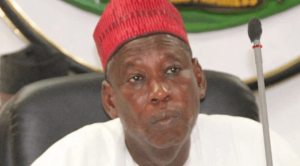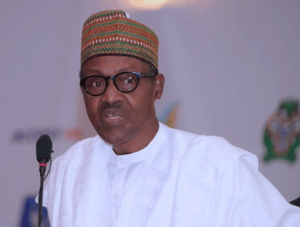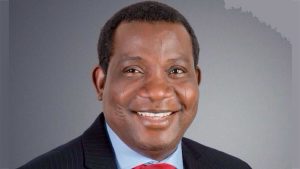The Nigerian Senate have questioned the Chief Justice of Nigeria, Walter Onnoghen, to explain why he advised President Muhammadu Buhari to withhold assent to some of 17 bills.
Naija News learnt that Mr Onnoghen appeared before a technical committee mandated by the Senate to ‘revive’ the 17 Bills on Thursday, a report by This Day indicates.
https://twitter.com/diamondnewsngr/status/1066251628326645760
The committee was particularly interested in knowing what the CJN relied upon to decline assent to Constitution (4th Alteration) Act. No. 22, which seeks to strengthen the judiciary for speedy dispensation of Justice.
Chairman of the Committee, David Umoru, in his opening remarks, said the invitation was important as President Buhari cited advice of the CJN in his decline response.
“Your Lordship, this committee on behalf of the Senate and by extension, the National Assembly wants to hear from you directly on why you advised the president to refuse assent to the bill.
“We believe that information made available to us via his letter of refusal of assent on account of advice given by your lordship is also available to you,” he said.
The lawmakers thereafter went into a closed door session. At the end of the session, attempts made to get clarifications from the CJN by journalists on what transpired at the closed door session were unsuccessful as he refused to speak with reporters.
Although the committee chairman said President Buhari directed Attorney General of the Federation and the Minister of Justice, Abubakar Malami, to interface with the CJN to remedy the defects in the bill to strengthen the judiciary, neither Malami nor his representative was at the meeting.
Also, representatives of the Governor of the Central Bank of Nigeria, Chairman of Federal Inland Revenue Services (FIRS) and Postmaster General of the Federation had closed door session with the committee on how rejected Stamp Duties (Amendment) Bill, 2018 can be redrafted and forwarded to the president for assent .
President Buhari had in his letter of refusal of assent to the bill forwarded to both chambers of the National Assembly said the bill’s proposals for the imposition of stamp duties on savings accounts and electronic transactions may impair the implementation of the federal government’s Financial Inclusion Strategy, e-payment programmes and cashless banking policies.
Mr Umoru said the committee will meet with heads of other government establishments and the Attorney General of the Federation next week to fashion out how to rectify the remaining 15 bills refused assents by the president
The post CJN Onnoghen Speaks On why He Advised President Buhari To Reject 17 bills appeared first on Naija News.





